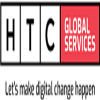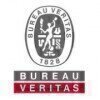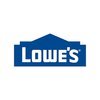Filter interviews by
JCB Sales Engineer Interview Questions and Answers
6 Interview questions
The density of water is approximately 1 gram per cubic centimeter at 4 degrees Celsius.
The density of water is 1 g/cm^3 at 4 degrees Celsius.
Water is most dense at 4 degrees Celsius and its density decreases as it freezes into ice.
The density of water can vary slightly with temperature and impurities.
I am committed to growing and developing within the company, and am open to discussing a longer-term agreement.
I am dedicated to my career growth and see potential for long-term development within the company.
I am open to discussing a longer-term agreement to show my commitment.
I believe in building strong relationships with colleagues and clients, which will help me stay motivated and engaged in my role.
Torque is a measure of the rotational force applied to an object.
Torque is calculated as the product of force and distance from the axis of rotation.
It is measured in units of force multiplied by distance (e.g. Newton-meters or foot-pounds).
Torque is essential in determining the ability of a force to rotate an object.
Examples of torque include tightening a bolt with a wrench or opening a door by turning the knob.
Joseph Cyril Bamford
JCB stands for Joseph Cyril Bamford, the founder of the construction equipment company JCB.
Joseph Cyril Bamford started the company in 1945 in England.
JCB is known for manufacturing construction, agriculture, waste handling, and demolition equipment.
I would tailor my pitch to highlight the specific benefits and features of the machine that align with the customer's needs and goals.
Understand the customer's industry and specific needs before pitching the machine.
Highlight how the machine can solve the customer's pain points or improve their processes.
Demonstrate the machine's features and capabilities through live demos or case studies.
Tailor the pitch to addr...
JCB manufactures a variety of machines including excavators, backhoe loaders, skid steer loaders, telehandlers, and compactors.
Excavators
Backhoe loaders
Skid steer loaders
Telehandlers
Compactors
JCB Sales Engineer Interview Experiences
2 interviews found
I applied via Newspaper Ad and was interviewed in Aug 2024. There was 1 interview round.
(6 Questions)
- Q1. Why should we hire you?
- Ans.
I have a strong technical background, excellent communication skills, and a proven track record of exceeding sales targets.
I have a Bachelor's degree in Engineering and relevant technical certifications.
I have successfully sold complex technical solutions to clients in the past, exceeding sales targets by 20%.
I have excellent communication skills and can effectively communicate technical information to both technical a...
- Q2. As you have no sales experience, why should we consider you?
- Ans.
I may not have direct sales experience, but I possess strong technical knowledge, excellent communication skills, and a passion for problem-solving.
I have a solid technical background which allows me to understand and effectively communicate the value of our products to potential customers.
I am a quick learner and have a proven track record of adapting to new challenges and environments.
I am highly motivated and custom...
- Q3. What guarantee is there that after training you won't leave these company within 5-6 months? Will you sign 3 years agreement?
- Ans.
I am committed to growing and developing within the company, and am open to discussing a longer-term agreement.
I am dedicated to my career growth and see potential for long-term development within the company.
I am open to discussing a longer-term agreement to show my commitment.
I believe in building strong relationships with colleagues and clients, which will help me stay motivated and engaged in my role.
- Q4. As it is a sales job and you have to travel a lot for it, Are willing to travel a lot? And as it is coustomer satisfaction oriented job you will be called to be ready to travel a lot.
- Q5. What is density of water??
- Ans.
The density of water is approximately 1 gram per cubic centimeter at 4 degrees Celsius.
The density of water is 1 g/cm^3 at 4 degrees Celsius.
Water is most dense at 4 degrees Celsius and its density decreases as it freezes into ice.
The density of water can vary slightly with temperature and impurities.
- Q6. What is torque?
- Ans.
Torque is a measure of the rotational force applied to an object.
Torque is calculated as the product of force and distance from the axis of rotation.
It is measured in units of force multiplied by distance (e.g. Newton-meters or foot-pounds).
Torque is essential in determining the ability of a force to rotate an object.
Examples of torque include tightening a bolt with a wrench or opening a door by turning the knob.
I applied via Referral and was interviewed before Apr 2023. There was 1 interview round.
(3 Questions)
- Q1. What id long form of JCB?
- Ans.
Joseph Cyril Bamford
JCB stands for Joseph Cyril Bamford, the founder of the construction equipment company JCB.
Joseph Cyril Bamford started the company in 1945 in England.
JCB is known for manufacturing construction, agriculture, waste handling, and demolition equipment.
- Q2. What types of machines in JCB?
- Ans.
JCB manufactures a variety of machines including excavators, backhoe loaders, skid steer loaders, telehandlers, and compactors.
Excavators
Backhoe loaders
Skid steer loaders
Telehandlers
Compactors
- Q3. How will u pitch a machine to any type of customer?
- Ans.
I would tailor my pitch to highlight the specific benefits and features of the machine that align with the customer's needs and goals.
Understand the customer's industry and specific needs before pitching the machine.
Highlight how the machine can solve the customer's pain points or improve their processes.
Demonstrate the machine's features and capabilities through live demos or case studies.
Tailor the pitch to address t...
Interview Preparation Tips
- Company Profiling
- Product
Top trending discussions







Interview questions from similar companies

I applied via Approached by Company and was interviewed before Oct 2021. There were 2 interview rounds.

(2 Questions)
- Q1. Introduction about yourself
- Q2. Experience and BPO related questions
Interview Preparation Tips
- Bpo Operations

I applied via Campus Placement and was interviewed in Dec 2020. There were 9 interview rounds.
Interview Questionnaire
2 Questions
- Q1. Do you know how to team handling?
- Ans.
Yes, I have experience in team handling.
I have successfully led a team of 10 members in my previous role.
I have experience in assigning tasks, setting goals, and monitoring progress.
I believe in effective communication and fostering a positive team environment.
I have conducted regular team meetings to address any issues and provide guidance.
I have also provided coaching and mentoring to team members to enhance their sk...
- Q2. Are you willing to relocation?
- Ans.
Yes, I am willing to relocate for the Team Leader position.
I am open to moving to a new location for career growth and opportunities.
I understand that relocation may be necessary to effectively lead and manage a team.
I am flexible and adaptable to new environments and cultures.
I have previous experience relocating for work and have successfully integrated into new teams.
Interview Preparation Tips

I applied via Recruitment Consulltant and was interviewed before Nov 2021. There were 2 interview rounds.

(2 Questions)
- Q1. There is nothing generic. You have to be ready with anything and everything possible.
- Q2. They can ask you anything.
Interview Preparation Tips


(2 Questions)
- Q1. Started with face to face interview
- Q2. About first company roles and responsibilities
Interview Preparation Tips

I applied via Naukri.com and was interviewed in Nov 2021. There was 1 interview round.
Interview Questionnaire
1 Question
- Q1. Web api basic and advance
Interview Preparation Tips

I applied via Walk-in

45 mins, maths
(3 Questions)
- Q1. What are your salary expectations?
- Ans.
Salary expectations depend on experience, industry standards, and the specific responsibilities of the Team Leader role.
Market Research: I have researched the average salary for Team Leaders in our industry, which typically ranges from $70,000 to $90,000 annually.
Experience Consideration: Given my 5 years of experience in leadership roles, I believe a salary in the range of $80,000 to $90,000 is appropriate.
Value Addit...
- Q2. Share details of your previous job.
- Ans.
In my previous role, I led a team of developers, overseeing project delivery and ensuring high-quality software solutions.
Team Leadership: Managed a team of 10 developers, fostering collaboration and ensuring project milestones were met on time.
Project Management: Oversaw the development of a web application that improved client engagement by 30%, utilizing Agile methodologies.
Code Review: Implemented a code review pro...
- Q3. Tell me about yourself.
Interview Preparation Tips
2. Basic system knowledge
3. Adapting mind

I applied via Referral and was interviewed before Aug 2023. There were 2 interview rounds.
(1 Question)
- Q1. Normal HR question
(2 Questions)
- Q1. Operation Question - KPI
- Q2. Work mode, concurrency, shrinkage

I applied via Referral and was interviewed in Feb 2024. There were 3 interview rounds.
(1 Question)
- Q1. Self intro roles responsibilities
Write about self intro and few grammar questions
(1 Question)
- Q1. About sales, just normal conversation
Interview Preparation Tips
JCB Interview FAQs
Tell us how to improve this page.
JCB Interviews By Designations
- JCB Assistant Manager Interview Questions
- JCB Quality Engineer Interview Questions
- JCB Quality Inspector Interview Questions
- JCB Electrical Engineer Interview Questions
- JCB Diploma Apprentice Trainee Interview Questions
- JCB Apprentice Trainee Interview Questions
- JCB Deputy Manager Interview Questions
- JCB Engineer Interview Questions
- Show more
Interview Questions for Popular Designations
Overall Interview Experience Rating
based on 2 interview experiences
Difficulty level
Duration
Interview Questions from Similar Companies
JCB Sales Engineer Reviews and Ratings
based on 2 reviews
Rating in categories
|
Assistant Manager
782
salaries
| ₹4.9 L/yr - ₹15 L/yr |
|
Deputy Manager
522
salaries
| ₹7.6 L/yr - ₹20 L/yr |
|
Senior Engineer
415
salaries
| ₹4.1 L/yr - ₹9.8 L/yr |
|
Quality Engineer
286
salaries
| ₹1.8 L/yr - ₹5 L/yr |
|
Manager
237
salaries
| ₹11.3 L/yr - ₹28.8 L/yr |

Landmark Group

McDonald's

IntouchCX

Bureau Veritas
- Home >
- Interviews >
- JCB Interview Questions












